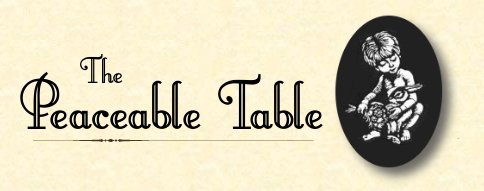Exile in Egypt

German theologian Dorothee Soelle, who during the Nazi era was an
anti-religious teenager full of romantic patriotism, went on to become a
foremost spokesperson for Christianity as radical and liberating love. In
Choosing Life she uses the image of Israel's exile in Egypt to
describe the consumerist "First World" situation of many religious
people, particularly in her own Christian tradition. The real exile,
she says, is that we have learned to accept exile; we have forgotten
our true home in unconditional Divine Love. We acknowledge that there
are things we don't like about our culture's way of life, such as its
greed and competitiveness, but we believe that they are after all a
part of human nature, which we can't expect to change much. We become
cynical. We don't remember our spiritual ancestors, nomads living in
the desert, who were aware of the natural world and dependent on God
from moment to moment. Instead, we are dependent upon "the fleshpots
of Egypt."
Her title comes from Deuteronomy 30:19, in which God says "I have set before you life and death, blessing and curse; therefore choose life . . ." Accepting the comforts of "Egypt" may seem to many to be a choice of life; after all, we have physical needs, which must be met. But Friends and other socially concerned people know that the costs of the Egyptian establishment are borne by somebody, by many somebodies, often kept out of sight. They are borne by Central American peasants whose bean and corn fields were appropriated by the mutinationals; by underpaid migrant workers in the U.S. who get sick from pesticides, by starvation-wage sweatshop workers. Those whose social concern exceeds human-made boundaries see also bruised and deformed chickens crammed into cages, their feathers worn off; cows and pigs spending their whole existence (hardly life) in crowded, stinking pens, in anguish when their infants are taken from them, finally dying in terror, so that there will be more eggs, more meat, more milk, more profits. Costs that are less obviously related are also borne by the beneficiaries of the Egyptian way. We are inclined to believe the message of the ads that love is to be found in jars of cosmetics, satisfaction of the soul in rich food or in being thin and wealthy and successful--but we find instead continued craving and anxiety, cancers and coronary heart disease..
How can we choose life deeply, choose life for all? Does not life inevitably feed on the blood of others? For a minority of animal species, the predators, it is so at the present stage of spiritual evolution. But is it necessary now for the majority of animals, who are not predators, especially humans? We really don't know what might be possible as a result of radical love. We are limited both by the myths and boundaries of our culture, and by a pervading dread of the terrible pain of identifying with those who must pay the deepest costs. There are many things we want very much not to know, not to feel. But Friends and other people of faith at our best do not close our hearts to friends; we need to listen to the victims, attend to the compassion in our own hearts. We also need to become leaders, encouraging other folk to listen and attend. We must live in the company of the great souls, of Moses, of Jesus, of George Fox, of Harriet Ross Tubman, if we are to find courage for a better way than the way of the half-alive, the way of perpetual compromises to safeguard our comforts. William Penn said "No cross, no crown," knowing that without the painful death of the ego, there can be no resurection, no birth of the True Self.


 This audio cassette offers compelling reasons why vegetarianism and or veganism is a logical choice for Jews. The cassette opens with an introduction by the eminent Rabbi David Rosen, who explains that as Jew, he does not view religion as separate from the rest of his life. Although Judaism condones consuming meat, it also teaches that Jews should work to minimize animal suffering. Moreover, as looking after one's physical well being is one of the primary teachings in Judaism, consuming animal products that are so often hazardous to the health contradicts this essential mitzvah. For Rosen, vegetarianism is a religious imperative.
This audio cassette offers compelling reasons why vegetarianism and or veganism is a logical choice for Jews. The cassette opens with an introduction by the eminent Rabbi David Rosen, who explains that as Jew, he does not view religion as separate from the rest of his life. Although Judaism condones consuming meat, it also teaches that Jews should work to minimize animal suffering. Moreover, as looking after one's physical well being is one of the primary teachings in Judaism, consuming animal products that are so often hazardous to the health contradicts this essential mitzvah. For Rosen, vegetarianism is a religious imperative.